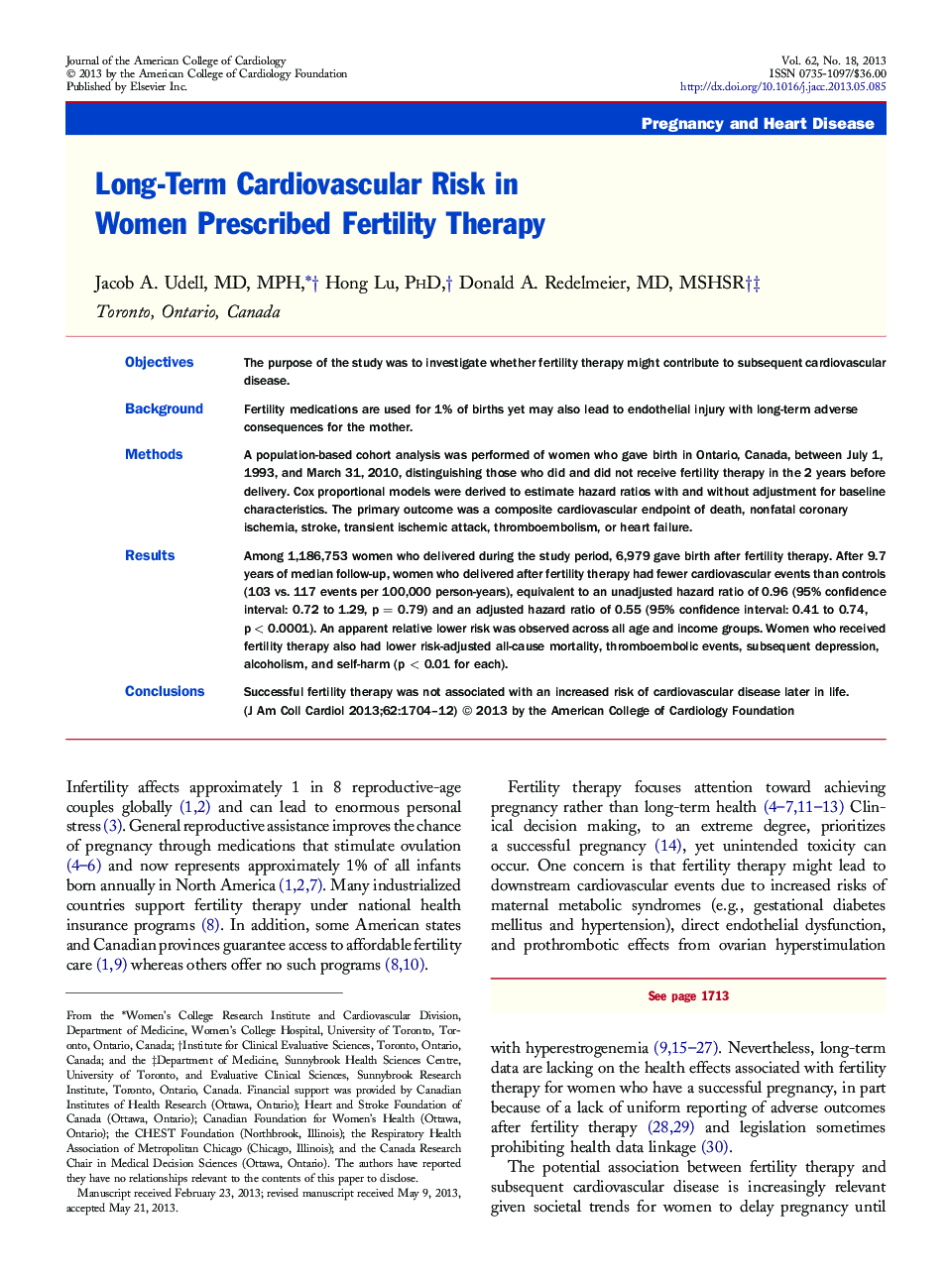| Article ID | Journal | Published Year | Pages | File Type |
|---|---|---|---|---|
| 5983035 | Journal of the American College of Cardiology | 2013 | 9 Pages |
ObjectivesThe purpose of the study was to investigate whether fertility therapy might contribute to subsequent cardiovascular disease.BackgroundFertility medications are used for 1% of births yet may also lead to endothelial injury with long-term adverse consequences for the mother.MethodsA population-based cohort analysis was performed of women who gave birth in Ontario, Canada, between July 1, 1993, and March 31, 2010, distinguishing those who did and did not receive fertility therapy in the 2 years before delivery. Cox proportional models were derived to estimate hazard ratios with and without adjustment for baseline characteristics. The primary outcome was a composite cardiovascular endpoint of death, nonfatal coronary ischemia, stroke, transient ischemic attack, thromboembolism, or heart failure.ResultsAmong 1,186,753 women who delivered during the study period, 6,979 gave birth after fertility therapy. After 9.7 years of median follow-up, women who delivered after fertility therapy had fewer cardiovascular events than controls (103 vs. 117 events per 100,000 person-years), equivalent to an unadjusted hazard ratio of 0.96 (95% confidence interval: 0.72 to 1.29, p = 0.79) and an adjusted hazard ratio of 0.55 (95% confidence interval: 0.41 to 0.74, p < 0.0001). An apparent relative lower risk was observed across all age and income groups. Women who received fertility therapy also had lower risk-adjusted all-cause mortality, thromboembolic events, subsequent depression, alcoholism, and self-harm (p < 0.01 for each).ConclusionsSuccessful fertility therapy was not associated with an increased risk of cardiovascular disease later in life.
